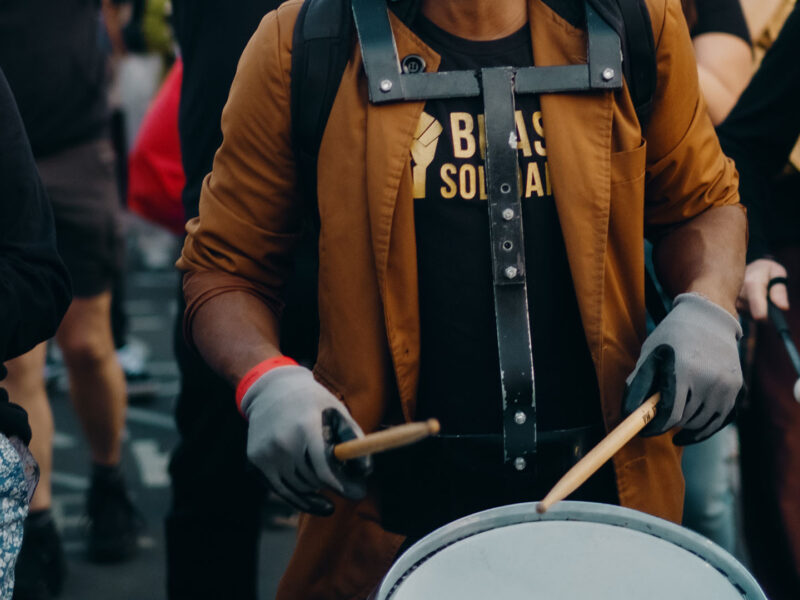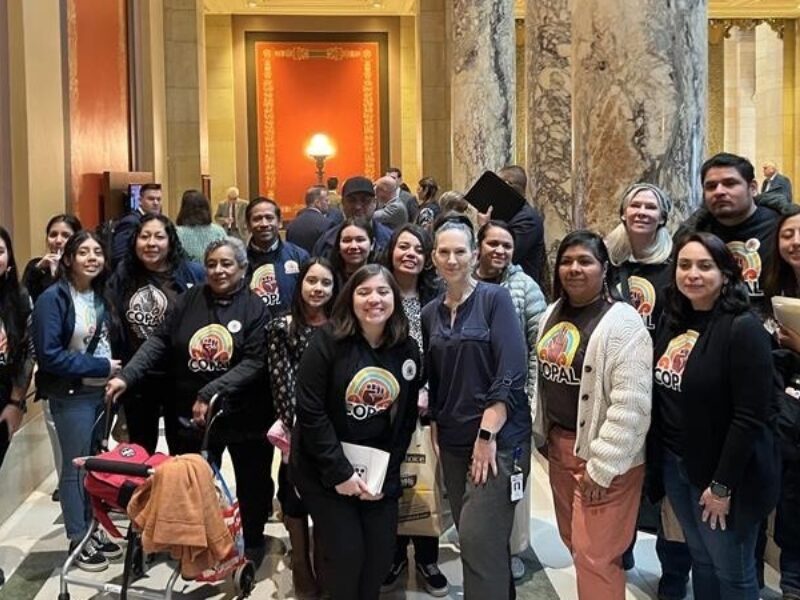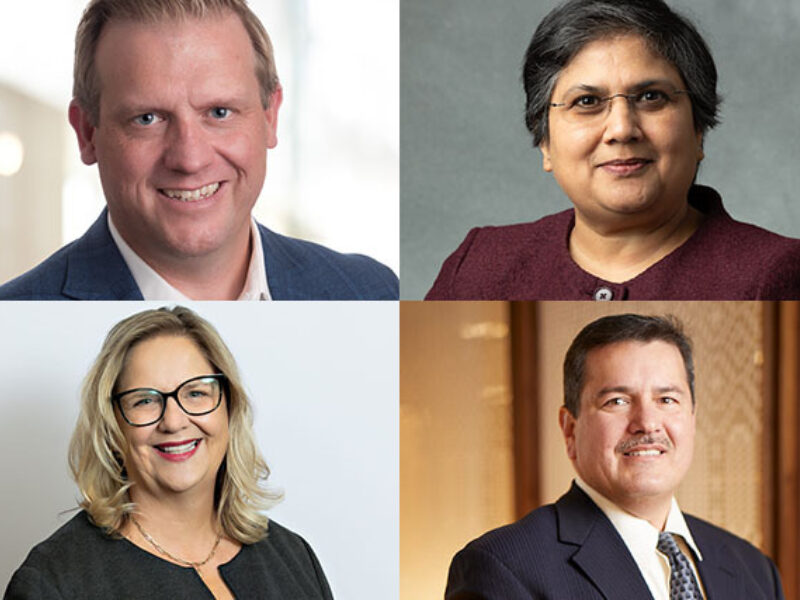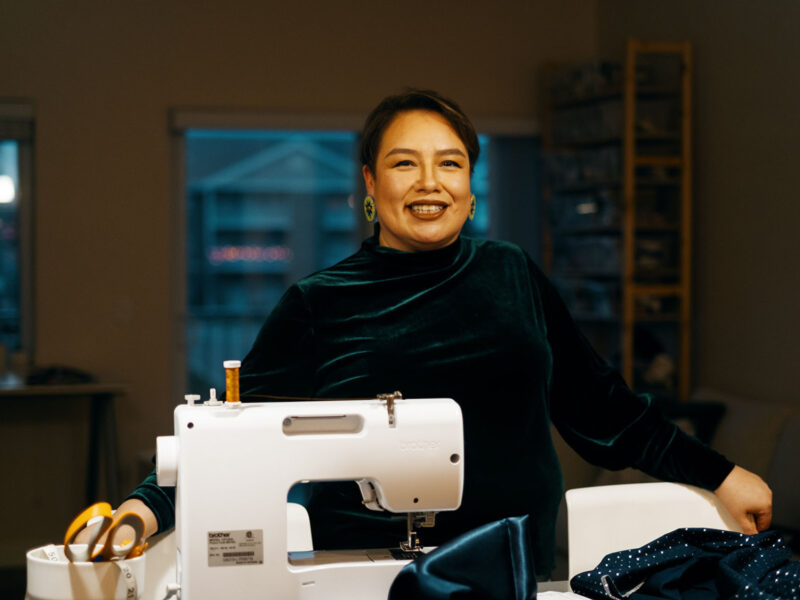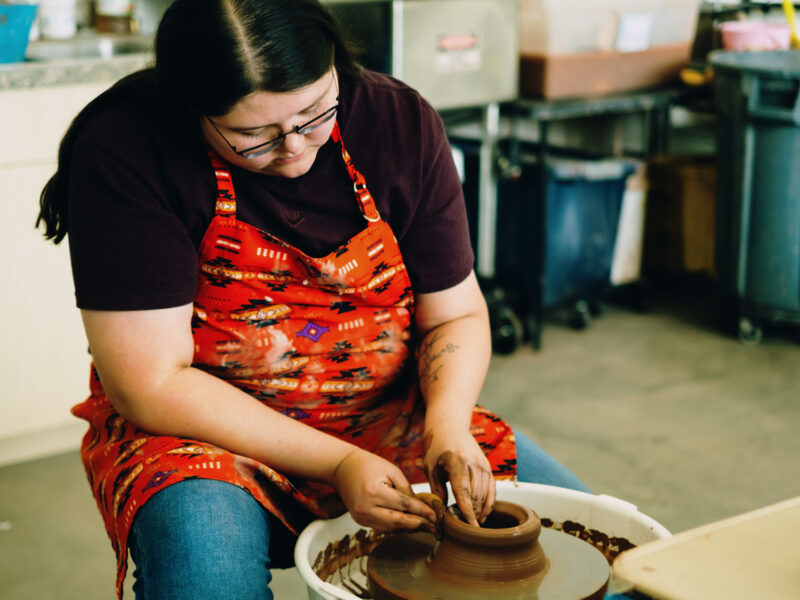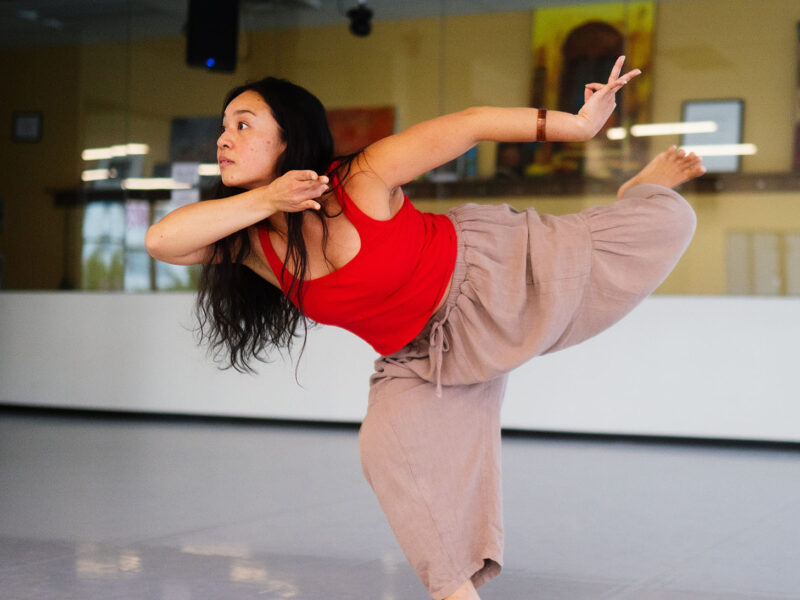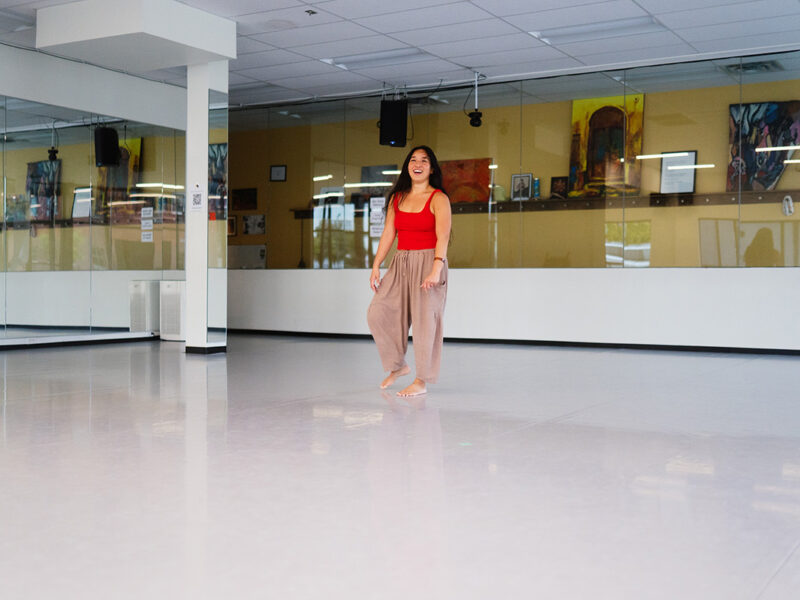The Foundation’s Chief Marketing Officer responds to colorblind comments on social media.

By Melanie Hoffert, Chief Marketing Officer
As marketing and communications professionals at the Saint Paul & Minnesota Foundation, my team and I monitor the performance of our communications tactics.
When something is a performance outlier, we pay attention.
Recently, we ran a social media advertising campaign to promote our Facing Race Awards. The annual Facing Race Awards celebrate incredible leaders in our state who use their time and talents to fight racism in a quest for a more equitable and just world. The campaign included several ads with similar messages and different images. One ad in the campaign outperformed the others, with over 140 comments, 200 reactions and many shares. This ad featured a photo of a woman wearing a hijab.
Typically, that sort of engagement would be something for us to celebrate, but in this case, a majority of the comments reinforced the reason we need the Facing Race Awards in the first place.
Many people posted racist comments and many of those posts were specifically anti-Muslim.
There was another category of comments, too, where people asked why we needed to focus on race in the first place; if it wouldn’t be better if we looked beyond color and treated people equally; if we could just forget all of this race stuff and get along; if we would be better off to just talk about the human race.
Against conventional wisdom, we are not going to ignore the comments.
I realize that no amount of discourse or information sharing will likely change the minds of the people (and bots) espousing hate. Though, that said, it is important to name and acknowledge the hate, bigotry and ignorance that the Muslim community continues to endure; to acknowledge the very real Islamophobia and hateful anti-Muslim sentiment that they must navigate. The fact that a woman in a hijab invited so many brazen comments is continued evidence that we have work to do to create a safe and welcoming community for our Muslim neighbors who must navigate this ignorance in their day-to-day existence.
I would also like to offer some thoughts on the call for colorblindness, and the ways that colorblindness too easily allows people to avoid the real work of dealing with and eradicating Islamophobia and other forms of hate.
The Problem with Colorblindness
This notion of colorblindness is a seductive one and is often viewed as an ideal end state. And yet, while often well-intentioned, striving for colorblindness can be harmful.
As evidenced in the responses to our ad, those who identify as Black, Indigenous and People of Color (BIPOC), or those with cultural norms that differ from the majority, experience anything but a colorblind world.
And disregarding peoples’ lived experiences holds us back from making real and much-needed progress.
Our President and CEO Dr. Eric Jolly often says, “One step toward justice is the courageous recognition of injustice.”
As a white woman, I cannot be certain to recognize injustice if I don’t hear, heed and act on what my BIPOC colleagues, friends and neighbors tell me about their experiences.
I cannot recognize injustice if I aim to be colorblind rather than paying attention to the overt ways (e.g., terrible comments) and subversive ways (e.g., the design of systems intended to benefit white people) that perpetuate racism in our world.
Said another way, striving for colorblindness minimizes — even if it is coming from a desire for a better world — the very real effects that systemic racism has had on BIPOC people, and the very real steps we need to take to change that.
Intercultural Development Inventory
At the Foundation, as staff and board members, we participate in a training and assessment based on the Intercultural Development Inventory (IDI) developed by Mitchell R. Hammer, Ph.D. The assessment helps one understand where they are on a continuum related to building intercultural competence. The continuum ranges from Denial to Polarization, to Minimization, to Acceptance, and to Adaptation.
Colorblindness falls into the minimization orientation, where one “highlights cultural commonality and universal values and principles that may also mask deeper recognition and appreciation of cultural differences.”
We are all somewhere on this continuum and to aim for adaptation gets us closer to being “capable of shifting cultural perspective and changing behavior in culturally appropriate and authentic ways.”
That is to say, recognizing and honoring our differences can help us create a world where we thrive in the truth that we all have multiple intersectional identities, including race. And that the divergent experiences we have based on our race are real. Facing Race is important.
Striving for an Equitable World
For those truly aiming for a colorblind world, where everyone has access to opportunities, and where we can live free from insidious racism, I invite you to consider a different path to achieve that end goal.
Perhaps start by being actively curious about those who have very different life experiences and identities than yours. Consider how those identities may impact how someone experiences an event (first day of school, a work meeting, a police stop, dining in a restaurant, seeing their image on social media) differently than you. You might even start by watching the Facing Race Awards and learning from the perspective of those in our community who are working toward a more just future for all of us.
I am fortunate to work at the Saint Paul & Minnesota Foundation, an organization that is dedicated to celebrating the values that make us similar as well as the things that make us different; an organization that invests in narrative change to tackle the stereotypical narratives that are often perpetuated about certain communities. However, not everyone works in an organization that strives to be anti-racist, has a staff-led equity committee, or provides intercultural competency training to their employees. But we all do have the ability to learn more.
If you want to dig a little deeper to understand the impact of racism on our colleagues, friends and family members, we offer an anything-but-exhaustive list of racial justice resources as a starting place.




